
From the Chapter
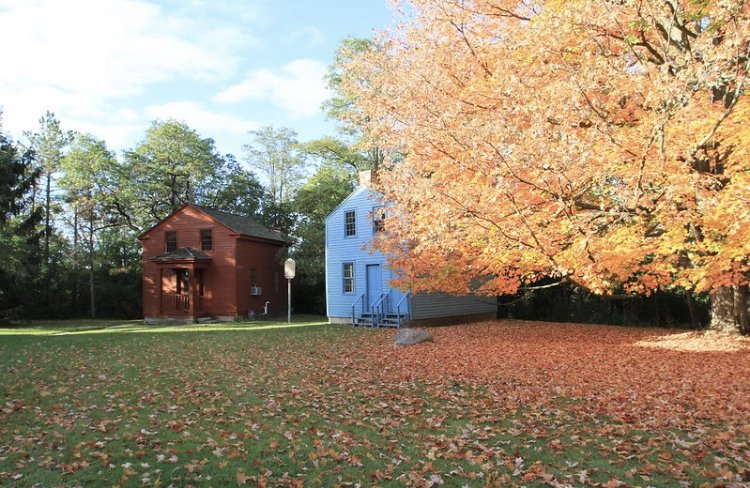
Economic and Immanent Trinity
By Hans Boersma, PhD, Saint Benedict Servants of Christ Professor in Ascetical Theology at Nashotah House
Christians need to learn only two lessons. No more, no less. Jesus himself provides this basic Christian catechesis in John 3, which recounts Nicodemus’s nighttime meeting with our Lord.
Imagine Jesus as catechism teacher and ourselves as sitting with Nicodemus in the back of the room, learning our lessons. “Rabbi,” we say to Jesus as we raise our hand, “we know that you are a teacher come from God.”
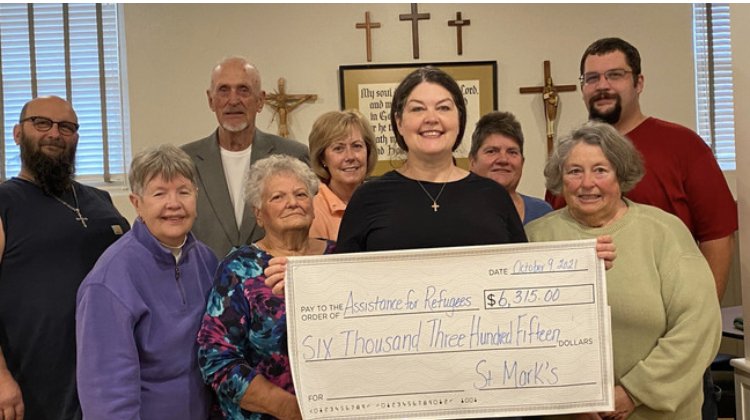
Daughter of the House Featured in Local News
A Waupaca, Wisconsin church is providing Afghan and Haitian refugees with financial assistance. St.. Mark's Episcopal Church says it raised more than $6,300 for those in need. “We know we have been blessed with so much here in Wisconsin,” said the Rev. Julia Hendrix, rector of St. Mark’s, in a news release. “We believe that whenever someone is in need, as Christians, we have a duty to make sure that they are cared for
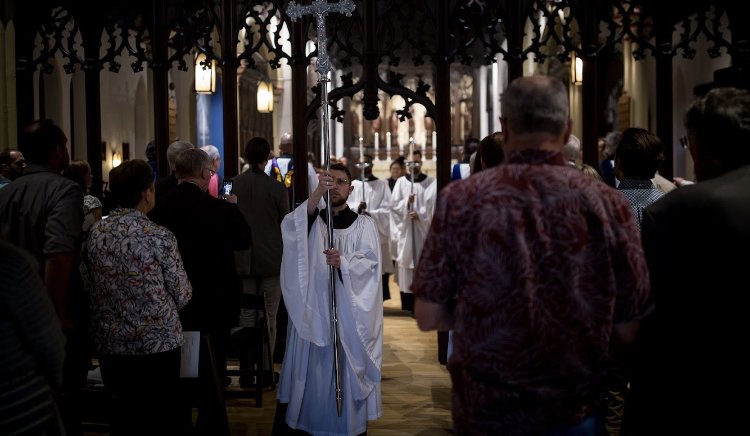
Pilgrimage Now and Then
By The Rev. Thomas N. Buchan, Ph.D., III, Associate Professor of Church History at Nashotah House
The year 2020 had been designated by the Association of English Cathedrals as a “Time to Discover Cathedrals, Discover Pilgrimage.” Several cathedrals anticipated the celebration of significant anniversaries. Others planned reinvigorated welcome centers and hospitality programming to encourage visitors. A Pilgrim Passport was launched, a small booklet containing a checklist of every English cathedral, listed by region, as well as “inspirational quotes, prayers, . . . and blank pages” which could be used by visitors to document and record their experiences. Prospective visitors were “invited to use this passport for your own adventure of discovery, following in the footsteps of many thousands of pilgrims who have come to these places over the centuries to learn, to think about their lives, and ask for God’s help and guidance.”

What the Bible Says about Lying
By The Rev. Stewart Clem, Ph.D.
The Bible does not condone lying.
Or does it?
On the one hand, when lying is considered in the abstract, the biblical authors are unequivocal: “Lying lips are an abomination to the Lord” (Prov. 12:22a), “You destroy those who tell lies” (Ps. 5:6), “Do not lie to one another, seeing that you have stripped off the old self with its practices,” (Col. 3:9). But there are plenty of stories in the Bible in which characters tell lies, and not only do they get away with it — they’re often praised for their actions. The Hebrew midwives lied to the Egyptians, who were carrying out the king’s edict to murder every newborn Hebrew boy. The narrator tells us, “And because the midwives feared God, he gave them families” (Ex. 1:21). Rahab lied to the Canaanite soldiers in order to protect Joshua’s spies (Josh. 2:4-6) and was later eulogized in the New Testament (Heb.11:31; Jas. 2:25). How can we reconcile these passages of Scripture?

Seeking Understanding: A Conversation with _Embracing Auschwitz_
A Book Review from Tara Jernigan
The prayer attributed to St. Francis profoundly requests, "O divine Master, grant that I may not so much seek to be consoled as to console, to be understood as to understand, to be loved as to love." That prayer speaks to us because at some level each of us wishes to be understood, and each of us knows that true love of our neighbors must instead seek to understand, to accept the stranger, not on our terms but on theirs. There is, however, another desire deep within us, to keep our pain to ourselves. We want to be understood, except where it hurts. When someone overcomes this natural desire for self-preservation and makes their pain known to us, we have a profound responsibility; we walk on holy ground.
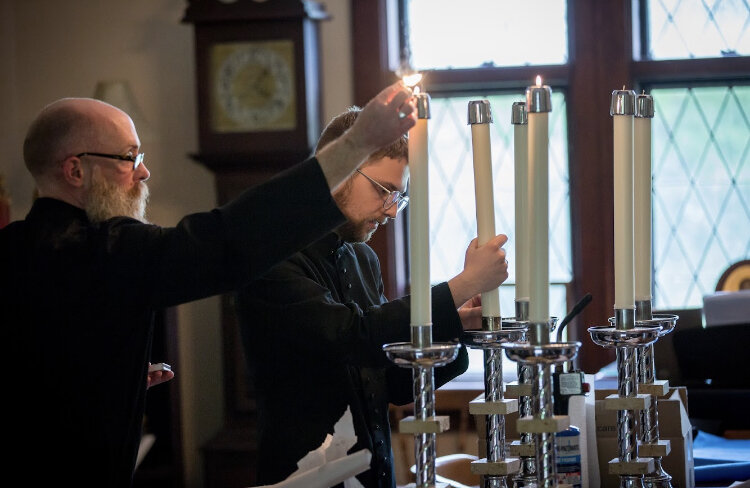
We Think it Worthwhile to Try the Old Ways Again
A Book Review from the Rev. Steve Rice, D.Min., (‘15)
John Shelton Reed’s Glorious Battle: The Cultural Politics of Victorian Anglo-Catholicism is more than the social history of a movement within Anglicanism; it also opens a fascinating sociological and theological window into our current COVID and anticipates our post-COVID ecclesial realities.
Reed, a scholar whose academic interests range from barbecue to birettas, was professor of sociology and director of the Institute for Research in Social Science at the University of North Carolina, Chapel Hill. Glorious Battle is not a survey of the theological or historical elements of the Tractarian (1833-1842) and Sub-Tractarian strata of the Oxford Movement, although he does a fine job of covering both.

The Very Rev. Robert Arthur L'Homme, 1941-2020
The Very Rev. Robert Arthur L'Homme, retired Dean of St. Paul's Cathedral in Peoria, Illinois, entered eternal life on November 25, 2020, after a courageous battle with COVID-19. He was born May 2, 1941, in Worcester, Massachusetts, to Arthur and Georgina Roberta Miner L'Homme, who preceded him in heaven.
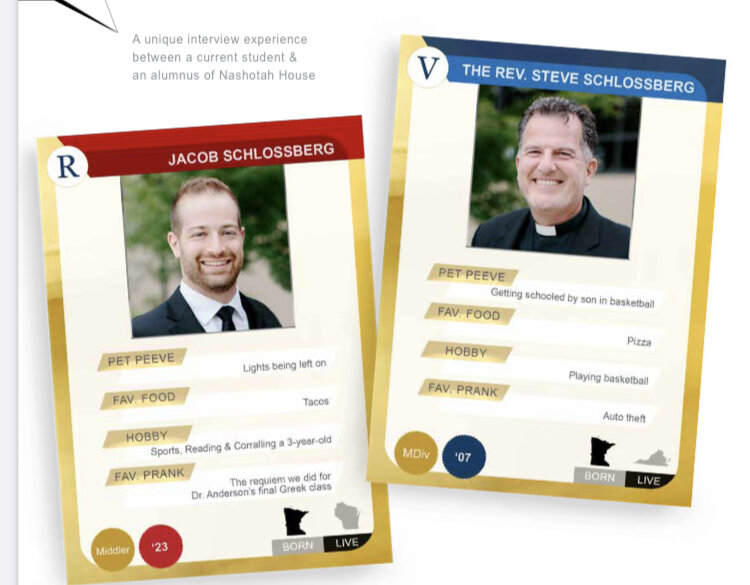
Conversations with the Rookie & Veteran
A unique interview experience between a current student and an alumnus of Nashotah House. In the following interview, the Rev. Steve Schlossberg, ‘07, and his son, Nashotah House upcoming “middler” Jacob Schlossberg, speak about their respective calls to serve God, their ministries, families, and time spent in formation at Nashotah House.
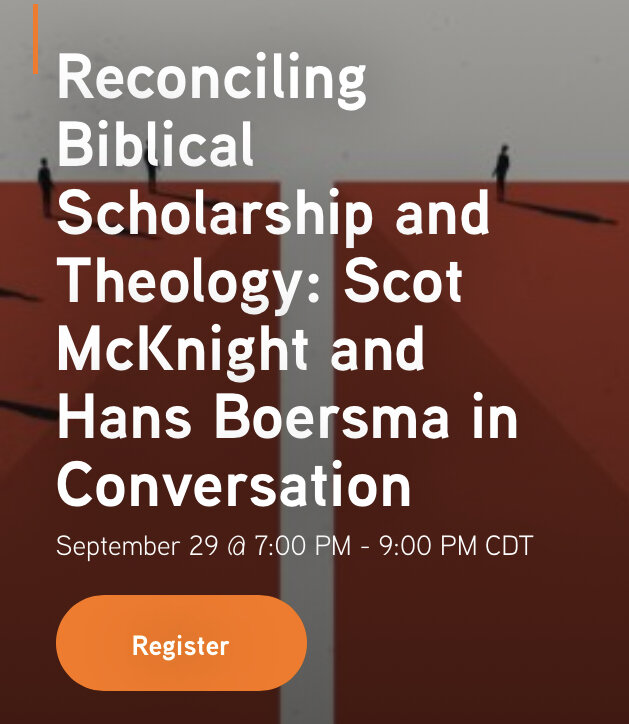
Reconciling Biblical Scholarship and Theology: Hans Boersma and Scot McKnight in Conversation
Join a fascinating discussion between New Testament scholar Scot McKnight (Northern Seminary) and theologian Hans Boersma (Nashotah House), who respectively just published Five Things Theologians Wish Biblical Scholars Knew and Five Things Biblical Scholars Wish Theologians Knew, both from InterVarsity Press (Academic).
This event will take place on Wednesday, September 29, 2021, from 7 p.m. - 9 p.m. at Upper House in Madison, Wisconsin. For more details and link to the main talks, please click the image above.

How to be an Angry Christian, According to Thomas Aquinas
Winter Course Highlight 2022
By the Rev. Stewart Clem, Ph.D.
People are angry. Given everything that’s happened in the past eighteen months, combined with the unlimited opportunities created by the internet for expressing our anger, this might be the angriest period in all of human history. That must be a bad thing, right? Anger is not a Christian virtue, after all. Jesus tells us that if anyone is angry with a brother or sister, that person will be liable to judgment (Matt. 5:22). The psalmist writes, “Refrain from anger, and forsake wrath” (37:8). How can anger be anything other than a vice?
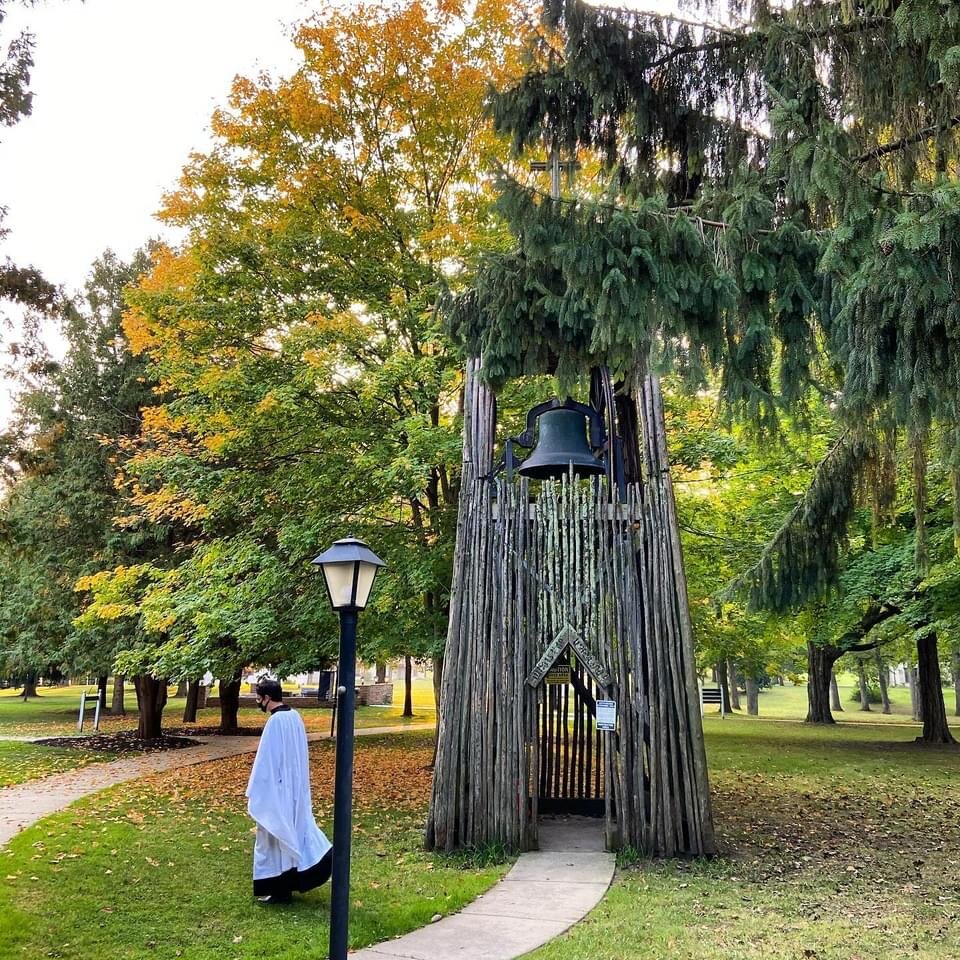
The Liturgical Medium is the Message
By Hans Boersma, PhD, Saint Benedict Servants of Christ Professor in Ascetical Theology at Nashotah House
Contemporary worship music is often banal. No matter the content, the form by itself trivializes what takes place in the liturgy. We keep trying to put asunder what God has joined together—medium and message, form and content—but invariably the divorce does not end well.
I’ll never forget when our kids came home with a new song they had learned at school.
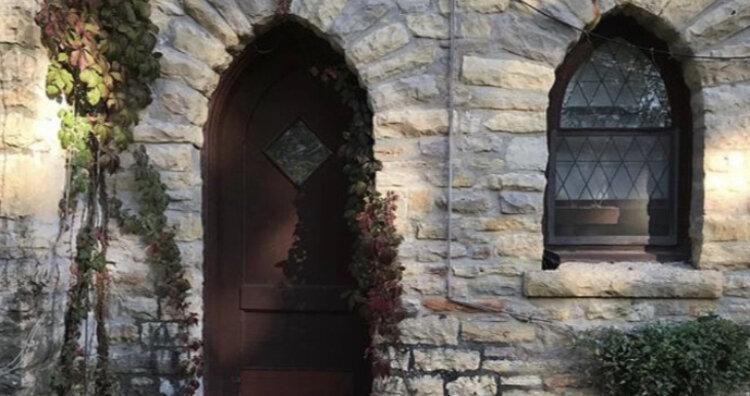
A Consecrated Baker’s Dozen
A Book Review from the Rev. Charles Hoffacker, (‘82)
This is a different sort of book about saints than many others. First, the word “saint” does not appear. The word used instead is “witness.” This avoids various problems associated with sainthood. It recalls the practice of those who do not ask deceased Christians to pray “for” them, but instead to pray “with” them. Second, the categories of holiness represented by these thirteen are limited to peacemakers, community builders, and agitators, people who take action in the public square and make “good trouble,” in the memorable phrase of John Lewis. Such specialization stands in contrast to a more complete range of categories. Yet, like other books about saints, this one focuses on people who lived out their faith in ways so costly that they ought not be overlooked.
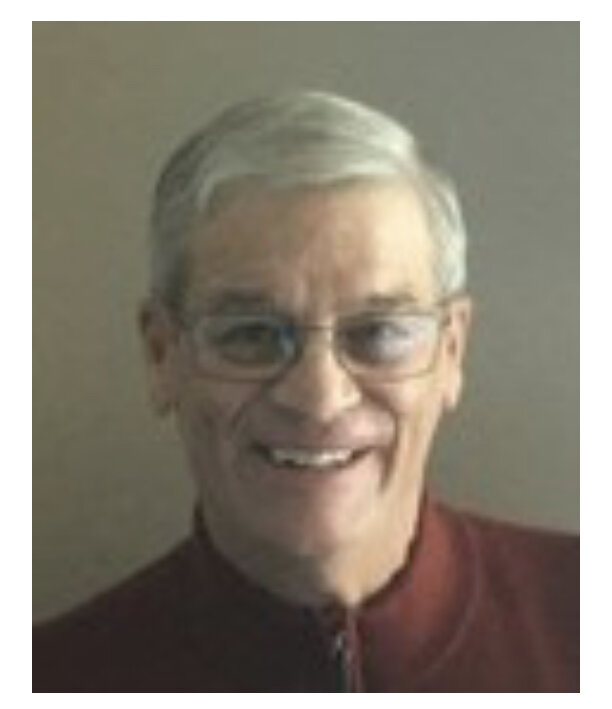
The Rev. Canon James R. Braun, 1949-2021
The Rev. Canon James "Jim" R. Braun, 71, died suddenly and unexpectedly, on Friday, January 1, 2021. He was born in Racine on May 24, 1949, the son of the late Jerome and Dorothy Konrad Braun. Jim graduated from the University of Wisconsin-Parkside in 1971, and from Nashotah House in 1974.

We Invite You to Consider
By the Rev. Jason S. Terhune, ‘15, Director of Operations and Student Services at Nashotah House
Here in this place rooted in mission, people continue to see that we are called to something larger than ourselves and even larger than what we comprise as a group. One of the first things I read about our historic institution was from N.T. Wright, “I have a sense that maybe Nashotah House, like the Irish in the Dark Ages, is called to hang onto certain things which other bits of the tradition have thrown away against the time when the rest of the church realizes it needs them again.” As I invite people to Nashotah House, I realize that I am inviting them to more than simply a place; I am inviting them to consider becoming members of our community so they may worship, study, and join in our common life. This invitation has been extended for nearly 175 years yet there is much that is new here, and certainly there are a number of choices for degrees, but at our core we are and have remained Nashotah House.
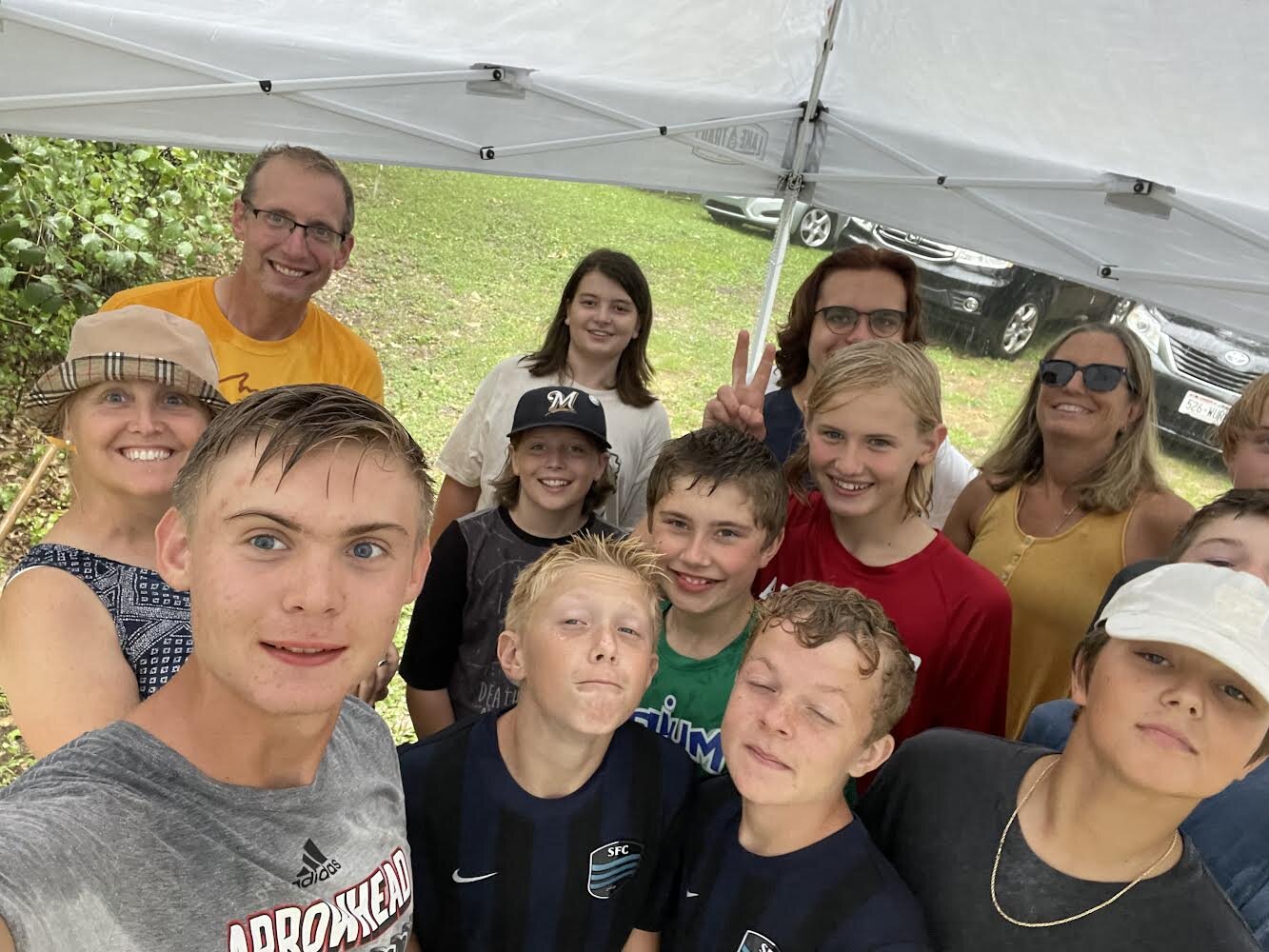
New Kayak Racks at Nashotah House
By Owen Jacobsen, Eagle Scout Troop 359 Hartland, Wisconsin
Hello, Nashotah House! My name is Owen Jacobsen and I am part of Eagle Scout Troop 359 from Hartland, Wisconsin, and for my recent scout project, I built a kayak and canoe rack for the Nashotah House community.
To let you know more about me: some things that I like to do are sports and robotics. I play football, swim, run track, and also bike. Some things that I do in my free time are hang out with friends, build things and mountain bike. I am currently the Shield patrol leader in my Troop. I am currently working on my eagle rank which is scouting’s highest honors.
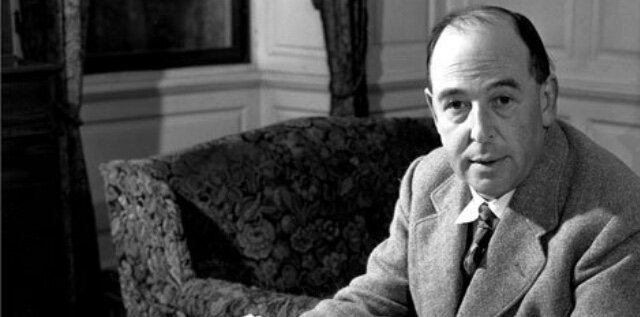
C.S. Lewis: A Personal Appreciation
By the Rt. Rev. Dr. John C. Bauerschmidt, Bishop of the Episcopal Diocese of Tennessee
I can see it in the mind’s eye: my teenaged self, in a suburban strip mall bookstore, taking down a paperback volume from the rack and beginning to read. I am a cradle Episcopalian, a hereditary Anglican, but neither catechized nor a church-goer. I do not know the words of the Lord’s Prayer, nor do I know the One who taught us that prayer. I live in a medium-sized southern city, in the midst of the broadly evangelical Christian culture of the time and place, with peers involved in church life, but most of what this means is opaque to me. I think I know enough about Jesus to dismiss him, but I am not as well informed as I think.
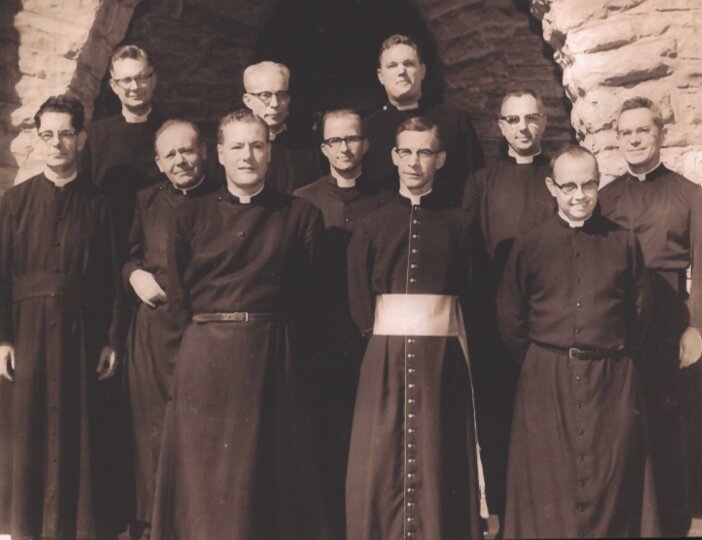
Nashotah Sketch: Fr. Frederick Joaquin and How I Learned to Celebrate the Mass
By The Rt. Rev. Keith L. Ackerman, ‘74, SSC, DD
When I arrived at Nashotah House, we still wore cassocks on campus, we said the grace in Latin, and the dean and faculty dined together at the “High Table” in the Refectory where all of us seminarians took turns wearing our white jackets as we served one another. In addition, as we all took our turns as sacristan, we daily “took down” and “put up” all that was necessary for the oratory masses - most of which were held in the administration building. We enjoyed our corporate recitation of Matins (as we called it then) at 6:30 or 6:45 a.m. in the Chapel of St. Mary the Virgin, and then each faculty member would proceed to his oratory, followed by the seminarian charged with serving Mass that day.
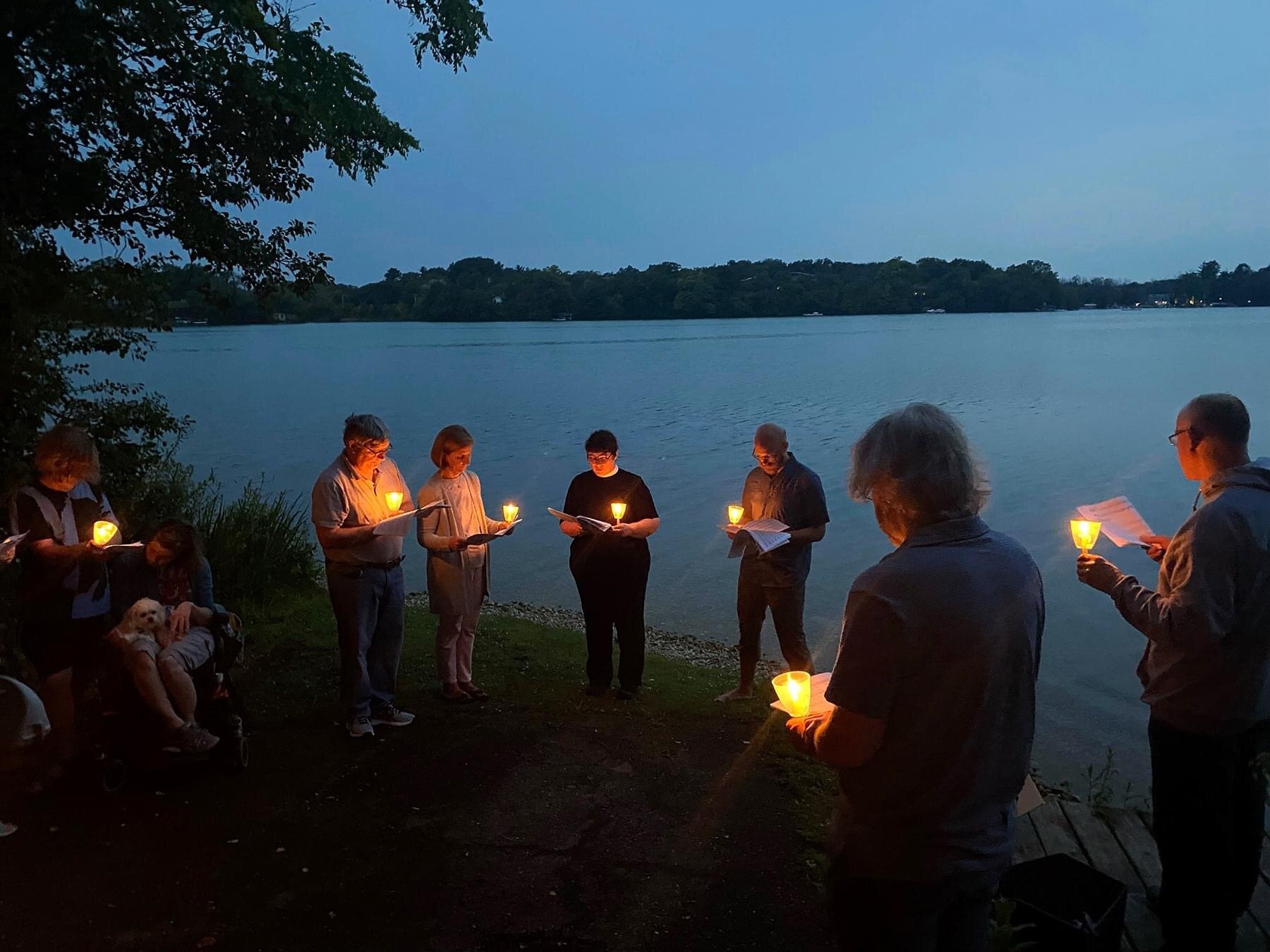
In Defense of the Therapeutic
By Hans Boersma, Saint Benedict Servants of Christ Professor in Ascetical Theology at Nashotah House
Talking about the gospel as therapeutic is dangerous. Not wrong, just dangerous. I used to think it was wrong, since Philip Rieff famously inveighed against the psychologizing of the self in The Triumph of the Therapeutic, his prophetic 1966 book. His critique fueled my suspicion of all things therapeutic.
Noted theologians have taken up Rieff’s mantle. Gregory Jones warns in Embodying Forgiveness (1995) that in our therapeutic culture, we are in danger of manipulating forgiveness by turning it into a self-help process: We are told to forgive others not for their sake but for ours, since it gives us psychological relief. The result, Jones rightly insists, is that we no longer “discern whether there are tragic misunderstandings or culpable wrongdoing and brokenness that need to be dealt with through practices of forgiveness and repentance.” Rather than work through the mess to make things right, we turn forgiveness into a tool for restoring our own inner peace.

Good, Rich, or Secure?
In this paper, Dr. Elisabeth Kincaid argues that the work of Francisco de Vitoria (1483-1546), Domingo de Soto (1494-1560), and Francisco Suárez (1548-1617) presents a sustained tradition arguing that the proper end of civil law is formation in true virtue of the citizens, making citizens capable of achieving natural happiness. Although this development in virtue may prepare citizens to obtain the supernatural happiness made possible ultimately by God’s grace, it still contains its own integrity and moral importance.

Edith Ho, 1932-2021
Edith Ho, who served as the Church of the Advent’s music director and organist for three decades, died July 30, 2021, in Worcester, Massachusetts, following a long illness. She was 88 years old. Ms. Ho earned a bachelor’s degree in piano from Columbia Union College in Takoma Park, Maryland, before going on to receive another bachelor’s in organ, as well as her master’s degree, from Peabody Conservatory in Baltimore. Additionally, Ms. Ho was awarded an honorary degree from Nashotah House in 1994. She was also a member of the American Guild of Organists and the Association of Anglican Musicians.
